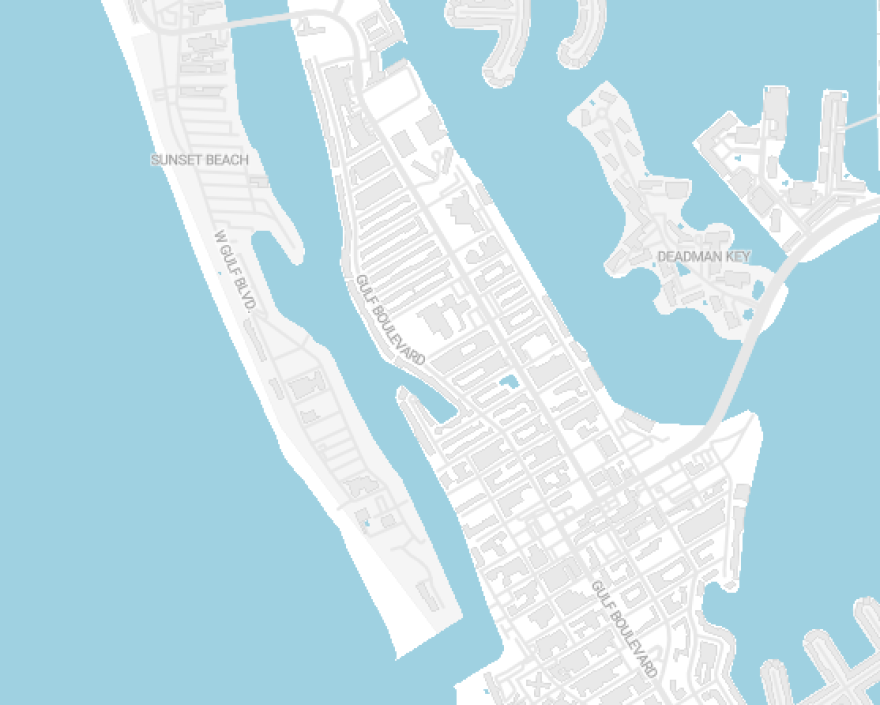Enough treated wastewater to fill more than 1,000 bathtubs dumped into Boca Ciega Bay on April 14 after a contractor working for Duke Energy hit a pipe during construction, according to a state pollution notice.
Roughly 45,000 gallons of reclaimed water spilled from the 4-inch water pipe near Bayshore Drive on Treasure Island after a worker struck the line while anchoring a wire that holds power poles into place.
The spill lasted for roughly 7½ hours as water drained into a nearby basin and ultimately into the popular bay bordered by St. Pete Beach, according to an incident report submitted by Pinellas County Utilities to state environment regulators.
The contractor hired by Duke Energy was Mississippi-based Irby Construction, according to the power company.
After utility crews stopped the water flow, Pinellas County alerted more than 1,000 commercial and residential customers affected by the outage, according to county spokesperson Sydney Criteser. They didn’t have reclaimed water until the line was repaired on April 20, six days after the contractor hit the pipe.
“We apologize that this incident occurred and are currently investigating to determine how this can be prevented from happening in the future,” Ana Gibbs, a spokesperson with Duke Energy, wrote in a statement to the Tampa Bay Times.
“Irby is working with the appropriate authorities to remedy the issue.”
Below: Here’s the exact location of the Treasure Island wastewater spill, according to the Florida Department of Environmental Protection

Reclaimed water is treated for solid waste and disease-causing organisms and is used for irrigation — but Pinellas County says the water is not acceptable for bathing or swimming. Reclaimed water isn’t the same as raw sewage, which is often untreated dirty dishwater and flushed waste.
The county alerted the affected water customers via an alert system operated by Everbridge, the software company that was responsible for an accidental early morning alert test on April 20 that blasted from Floridians’ cellphones. The Florida Division of Emergency Management said it now plans to sever its contract with the company.
The alert warned customers that repairs could take days, according to the message provided by the county. “Every effort will be made to minimize the impact to your reclaimed water service,” reads the alert.
It’s not the first time this year a regional power utility has been involved in a wastewater spill.
An estimated 630,000 gallons of raw sewage emptied into the Hillsborough River Jan. 10 after Tampa Electric cut the power to an apartment complex’s lift station, which is a well that pumps wastewater.
That spill prompted questions from Tampa Mayor Jane Castor, and the utility said it would commit to better communication before it disconnects a customer with a sewage station.
This story was produced in partnership with the Florida Climate Reporting Network, a multi-newsroom initiative formed to cover the impacts of climate change in the state.




